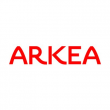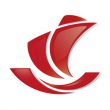Borsa Istanbul revitalises Turkish capital markets
Created in April 2013, Turkey’s new Borsa Istanbul exchange is at the heart of an ambitious project to turn Istanbul into a major global trading centre. With the country’s economy ascendant, Turkey has a lot to offer, according to Ali Çöplü, chief information officer of Borsa İstanbul.
Borsa Istanbul is the unified entity formed by the merger of Istanbul’s equity, derivatives, fixed income, gold and precious metals markets earlier this year. The exchange has just signed a major deal with Nasdaq OMX to completely revitalise its trading technology – a move calculated to take advantage of the country’s rising profile. Europe’s sixth largest economy grew at 5.1% per year over the last decade, while the IMF predicts Turkey will expand by 4.2% every year between now and 2019. Ratings agencies Fitch and Moody’s raised Turkey’s credit rating to investment grade in November 2012 and May 2013 respectively.
“Over the past decade, Turkey has experienced structural changes which have led to substantial economic advances,” Çöplü told Banking Technology. “In parallel, regulatory changes including the new Capital Market Law (CML) and Turkish Commercial Code have been introduced to help investment and support capital markets growth. Borsa Istanbul is at the heart of the Istanbul Finance Centre project, which will place our exchange among the most prominent in the world.”
Creating a ‘one-stop shop’ for different asset classes is an approach that has also been seen in other markets in recent years – notably Russia, where Moscow’s RTS and Micex exchanges were unified in late 2011, as part of that country’s drive to make Moscow a more relevant investment destination. In Turkey, the biggest portion of trading activity is in fixed income, with average daily volume of $15.1 billion last year. The equities market follows at $1.4 billion, while derivatives average $0.9 billion per day. Following the CML reforms enacted through Parliament, the exchange has become a joint stock company, a move intended to drive up corporate governance standards. Though the government currently retains a 49% share, it is planned that all remaining government shares will be offered for sale.
Technology is a major part of the exchange’s plan. At present, Turkey’s fixed income market uses a trading platform built by Australian technology company CSL, as does its derivatives market. Meanwhile, the equities market runs on a different system built in the 1990s by US vendor TCAM Systems, while the gold and precious metals market uses a third system built by a local software vendor. To make matters more complex, a fourth system is in use at TurkDEX, the alternative derivatives market that was also acquired by Borsa Istanbul as part of the merger. On the equities market, upgrades over the years have brought a throughput of 5,000 orders per second and latency below one millisecond via FIX. However, it is expected that the deal with Nasdaq OMX will lead to further improvements, including a major overhaul of all Borsa Istanbul IT systems.
“The partnership with Nasdaq OMX will provide the exchange with state of the art technology,” said Çöplü. “Increased efficiency will attract more and diverse investors to our platforms. As a result, the exchange will be the technology and finance hub of the region.”
However, one potential sticking point is the relatively small domestic investor base. The net asset value of pension funds in Turkey was $11 billion in December 2012, giving a ratio against GDP of 2%. That is far lower than the European average, which is nearer 40%. In response, the government has enacted several pension fund regulations within the last two years to promote domestic savings – at the end of 2008 Turkey’s pension fund asset value was $4.6 billion. During the same period, the number of investors participating in pension system rose to 8 million from 5 million. Of the 3 million new entrants, almost 1.5 million investors did so during 2012.
The exchange is also making efforts to increase the number of listed companies on its order books. Borsa Istanbul currently has 417 companies listed, with a market value of around $300 billion betwen them. The exchange plans to raise the number of traded companies to 1,000 by 2023. It is also hoped that the market cap to GDP ratio can be improved from 39% at the end of 2012 to 70% over the same period.
“The number and diversity of listed companies play a significant role in the success of any exchange,” said Çöplü. “Aware of this solid fact, Borsa Istanbul has been working to increase the number of companies traded on our platforms. In line with IFC vision, we also started the ListingIstanbul project in order to attract foreign companies for listing at Borsa Istanbul. Accordingly, we will be a major funding source for both Turkish and foreign companies and support Turkey’s growth on years to come.”
As the G20 nations prepare to implement the Pittsburgh agreement of 2009 to reduce systemic risk in financial markets by standardising, clearing and reporting the bulk of OTC derivatives contracts, Borsa Istanbul is getting its own house in order, registering its subsidiary Takasbank as a CCP and setting up an OTC trade repository to handle the task. Through Takasbank and its central securities depositary MKK, Borsa Istanbul effectively controls the post-trade services market in Turkey – a market that already makes up its second largest revenue source, after exchange fees.
“Our future roadmap includes broadening our existing products (for example increasing the number of commodities covered), extending our product configurations (for example more single-stock options), transposing debt-related instruments for local contexts (for example Islamic sukuk), initiating new business areas (for example energy and commodities), and driving increased efficiency of Borsa from greater integration and substantial upgrading of our technological platforms,” said Çöplü. “We also aim to increase the scope of post-trade services by moving to clear OTC products, by configuring Takasbank as a CCP, and by setting up an OTC trading repository.”













































